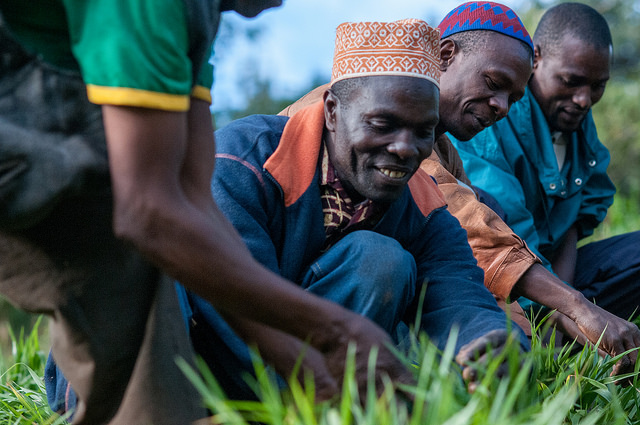
The facts are startling. More than 2 billion people worldwide suffer from micronutrient deficiency – 795 million of whom are undernourished. The challenge to nutritiously and securely feed the growing population is further exacerbated by climate change which has led to extreme weather patterns and decreasing crop yields. With more than 10% of the world’s population living on less than $1.90 per day, the imperative to transform food systems in a way that simultaneously improves lives, livelihoods and the condition of natural resources is clear.
Climate change presents a formidable challenge as one of the biggest constraints to improving food systems, food security and poverty alleviation around the world, especially for the world’s most vulnerable people. The impacts of climate change and poverty are closely interconnected as climate change impacts land availability, rainfall, and disease. With poor people disproportionately dependent on rainfed agriculture for their livelihoods, these communities are thus especially vulnerable to the impacts of climate change. The increasing frequency and intensity of climatic shocks impinges on their ability to sell an agricultural surplus, meaning less reinvestment in their farms and other livelihood activities, and less ability to purchase a nourishing diet.
The breakthrough Paris Climate Agreement of 2015, while far from perfect, represented an historic and ambitious new phase for climate action, and opened a door for the agricultural sector to take a leading role. “We recognize that the agricultural sector has a key role to play in increasing resilience to climate shocks. Food security, food production, human rights, gender, ecosystems and biodiversity were all explicitly recognized in the Paris agreement and these are issues at the core of our work,” according to Elwyn Grainger-Jones, Executive Director of the CGIAR System Organization.
Across Africa, Asia and Latin America, CGIAR and its partners are developing climate-smart technologies to help farmers adapt to climate change as well as mitigate agriculture’s contribution to climate change. The CGIAR Research Program on Climate Change, Agriculture and Food Security (CCAFS) brings together the expertise in agricultural, environmental and social sciences to identify and address this nexus between agriculture and climate change. Innovations such as drought tolerant crops, agricultural insurance schemes and management practices for reducing greenhouse gas emissions are just a few of the technologies being developed by CGIAR.
In Africa, researchers from the International Maize and Wheat Improvement Center (CIMMYT) are working on drought tolerant maize which offers African farmers significant benefits, producing up to 30 percent more grain than conventional varieties under drought. Through beneficial partnerships with governments, private sector and local NGO’s, researchers have fast-tracked varietal releases and fostered competitive seed markets, allowing for widespread access to quality seed at an affordable price.
“A large percentage of resource-poor farmers and consumers live in tropical environments, which are most vulnerable to climate change. By providing research-based knowledge and tools, CGIAR helps farmers adapt, bringing food security and prosperity to these areas,” said Martin Kropff, CIMMYT’s director general and CGIAR System Organization Board Chair. “CGIAR-led research on drought tolerant maize has helped more than 5 million households in 13 countries become more resilient to climate change.”
Read the full article by Elwyn Grainger-Jones, CGIAR System Organization Executive Director and Martin Kropff, Director General of CIMMYT. CGIAR and CIMMYT are Partners in GFAR.
Photo credit: CIAT/Georgina Smith
